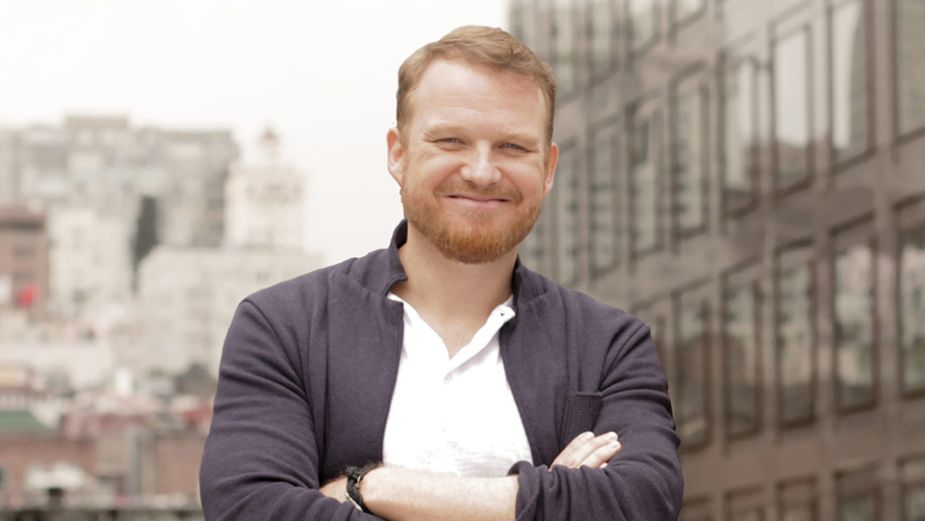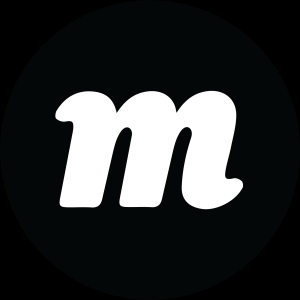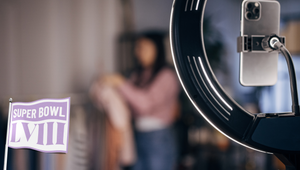
Creativity Squared: James Robinson and the Virtues of a “Loud, Friendly Argument”

According to creativity researchers, there are four sides to creativity. Person (personality, habits, thoughts), product (the thing that results from creative activity), process (how you work), and press (environment factors, education and other external factors) all play a part. So, we figured, let’s follow the science to understand the art of creativity. Creativity Squared is a brand new LBB feature that aims to build a more well-rounded profile of creative people.
First up is James Robinson, who accidentally stumbled into advertising while acting in very bad Japanese commercials while living in Tokyo. He parlayed this ‘experience’ into a 20-year award winning career at agencies like Mad Dogs & Englishmen, Venables Bell & Partners, 215 McCann and the Martin Agency. As the CCO of Momentum NA, he is responsible for all creative output for Verizon, American Express, Walmart, SAP, and more. He lives in New Jersey with his wife (also an award winning creative), two daughters, a 110-pound dog and very little free time.
He’s happiest writing about anything but himself. We got him to do exactly that.
Person
This is going to sound weird at first, but bear with me.
For some, creativity is a solitary act. The writer in their snowy cabin in the wilderness, calling forth their vision in isolation.
I’m not that kind of creative.
For me, creativity has to be a collective act.
Which is weird, because I am an introvert. But I hate creating alone.
At its best, creativity is like a heist film.
It is an act of intense collaboration, imagination, friction, problem-solving, blind luck and wild flashes of inspiration. And, if you are doing it right, lots of rules get broken, no one gets hurt and everyone leaves changed.
Like in any good heist, you are presented with a seemingly impossible problem. Like in any heist, you assemble your team of experts - your tunneller, explosives expert, the actor, the muscle and (because every heist team needs one) someone who can use a crossbow. And from their collective ideas, abilities, conflicts and arguments will come an idea that will crack that impenetrable safe of a problem in a way that the audience could never see coming. And it is going to look and feel effortless.
--
I grew up in a family that moved countries every few years. I think that has made me very curious, adaptable and delighted by new ideas. It has also made me incredibly restless, impatient and I crave constant change.
I see the world as a constant adventure - something to be explored, tasted, unlocked. I love nothing more than discovering a different way to see what’s around you, a new way to think, program, write, cook, listen or move. The more new inputs you let into your life, the more interesting your ideas will be.
I am not sure creativity can be learned so much as inspired, discovered or unlocked. You can teach the tools that allow creativity to be expressed in more varied and precise ways. What you do with those tools - whether you follow the blueprint or break off and create your own - is where creativity comes into play.
--
I am a friendly introvert. Professionally, I love working with people, collaborating, debating. But in my private life I am much more comfortable exploring the world on my own, or with a tiny select group.
I hate routine. That doesn’t mean I don’t go to my desk and sit there for hours at a time, day in and day out. I’m fine with that. But if I had to tackle the same problem in the same way, or tell the same story over and over, I’d probably end up lighting something on fire.
I don’t love just looking at advertising. I’m not the kind of person who could tell you what won every category at Cannes last year. That leads to groupthink. I think the biggest danger we have is looking for people who think like us. I try not to limit myself to looking at ‘creative’ stuff alone. The best way to be inspired is to try to absorb everything you can from everything you can. You never know if that obscure article on currency fluctuation might lead to a wild idea.
Product
Great creativity is always a surprise. The delight in discovering a great creative idea comes from the same place as the delight in hearing the punchline of a great joke. You don’t see it coming, it is totally unexpected and yet makes perfect sense. And it leaves you looking at the world in a whole new way.
Is it predictable?
Is it emotionally impactful?
Does it solve the exact problem in a unique way?
Does it change the way I think about the product/humanity/the world?
I think the criteria has been the same since I was 14. You know a great idea when you see it. How I express those criteria has changed over time.
Cliché again, but true - whatever I am working on right now, that is the work I am most excited by.
I’m conflicted about the state of the industry. On the one hand, I love that we are using the power of brands to make the world a better place - especially since our leaders seem to have abdicated that responsibility. But as much as I love it, I also long for the days when creativity brought joy and escape to the world. Especially coming out of the pandemic, joy for joy’s sake is not a bad thing.
Process
Every great idea I have ever been a part of starts with a loud, friendly argument. Before you can dive in, you have to really interrogate what the idea is going to have to do. That never arrives in client briefs, its sparks spring out from the friction between great creatives, planners and account people in close quarters hashing it out. Then you can let the creatives disappear into the fog of their imaginations. If we’ve all had the proper fight first, we’ll bump into the right idea somewhere in there.
Conversation is the ultimate iterative tool. People can hide behind emails, videos and Google docs. There is an immediacy and brevity to a text that I like. I fire them off at all hours. Ideas usually hit me as I am drifting off or waking up. If the idea can’t fit into a one-sentence SMS, it’s not worth pursuing. But those are only starting points; the real ideas take shape when creative people talk them through and really beat them up.
Massive group sprints and brainstorm sessions never really work for me. Its low-stakes ideating. Too much noise and not enough consideration or consequence.
I have a memory like a goldfish. Once a project is done, all the work generated is forgotten. I would love to draw on past inspirations, but honestly, I never remember them. As a consequence, every project is a blank slate.
Collaboration is everything for me. Alone, I wander off or get paralysed. For an idea to become realised for me it has to be vocalised. I need to see a response to know how to attack it.
When I get stuck I stop. Stop and go do something totally unrelated. Solitary and probably uncreative. Go to sleep. Work out. Cook a meal. The idea will come when it comes, and usually in the nick of time.
It’s done when the time is up. I have never had a project where we weren’t working right up to the deadline and could have kept working on it forever. Nothing is ever perfect. Ideas can always get better.
Press
Bad input, bad briefs, unclear objectives and indecisive clients. They break projects. If you have a great brief, a clear objective and a decisive client, the problem is you.
I grew up moving countries every three years. That meant constantly adapting, learning a new language, a new culture, new food. That made me curious, open to wild new stimuli and totally comfortable living in my own head, telling my own stories to myself.
I’m still honing my craft
But everything I am is a product of the people I started with.
Mad Dogs and Englishmen’s internship was the perfect creative bootcamp. They taught us rules didn’t exist and the best practices… weren’t. It was a pressure cooker of great thinkers surrounded by exacting taskmasters all fighting for one or two creative opportunities. It forced a never-say-die approach because as soon as you had something good, it would get beaten by something better and you had to be ready to come back and top it.
Fun helps you fly. Creation should be a constantly joyous act of constant building, refining and bringing new things to the table.
What kills creativity? Overthinking, over analysing. Fear. But the biggest one is ego - the need to own an idea or mark it. I’ve seen more great ideas die because people cannot let go of their initial concept and let things evolve into something great.
A great client never forgets that they are talking to people. Too many times we imagine that our business objectives are as important to the consumer as they are to us - and they aren’t. Clients who can look at a project as an opportunity to bring a bit of light into a tough world are the ones who create great, beloved work. And that starts with remembering the shared humanity we all have. If you can’t get your head out of your brand pyramids you can’t do that.
Build a team staffed top to bottom with people who love ideas. Create a culture that celebrates great ideas first and foremost. Make it [your agency] a place where everyone is free to be creative. Create a structure that allows more creative thinking and less hidebound process. Reward flexibility, adaptability and problem-solving. Give everyone a space where they can voice their ideas without fear or favour. That means being very careful about who you hire and retain. One toxic ingredient can kill creativity in whole teams.













